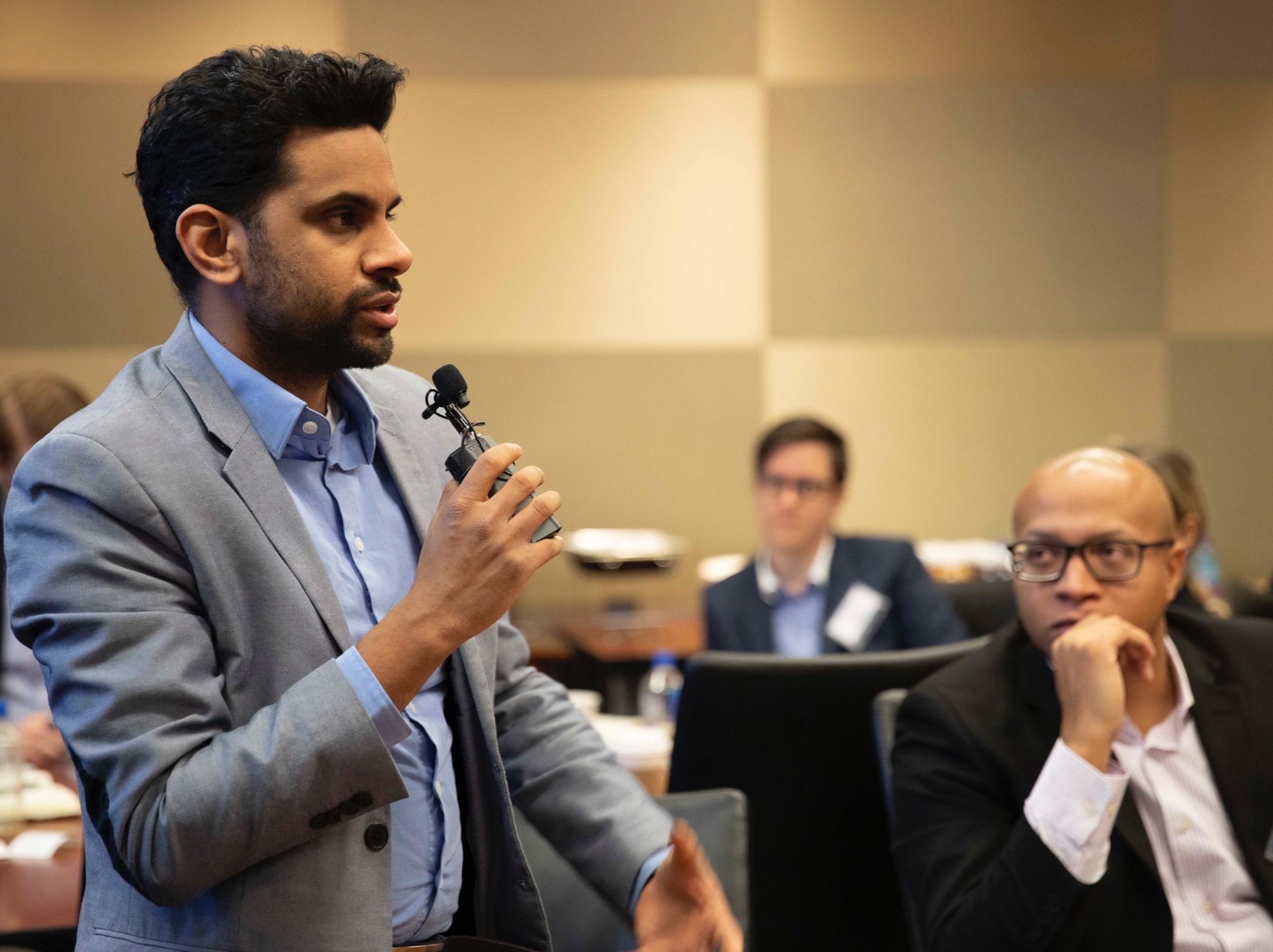- Bridget Hardy, AEG Fellow
The Chicago Advanced Energy Q4 discussion on Mobility and Transportation, kicked off by HG Chissell, CEO of Advanced Energy Group, was fueled by optimism and innovation. Stakeholders discussed current technologies, incentives, and policies and left the breakfast with new contacts and a clear call to action.
AEG’s Discussion Leaders assessed how their own work fits into and influences mobility and transportation trends. Their diverse work portfolios made for wide-ranging insight. Discussion Leaders included:
David Chandler, Director, Economic Development, Center for Neighborhood Technology
Vig Krishnamurthy, Senior Manager of City Solutions, Ford Smart Mobility
Maria Race, Director, Sustainability and Air Emission Strategy & Programs, United Airlines
Pete Ballard, Project Consultant, Chicago Transit Authority
Steve Humes and Barbara Adams, Holland & Knight, AEG’s Host Stakeholder
Steve Humes, Holland & Knight, started off the morning focusing on the mobility and transportation trends in the Chicagoland area. Commissioner Sadzi Oliva, Illinois Commerce Commission (ICC), foreshadowed the NextGrid Technology Working Group’s report, due to be released in December 2018 with a focus on the economic and consumer benefits of electric transportation.
Sadzi Oliva, Illinois Commerce Commission
The report will provide a roadmap with tools Illinois will need for the grid of the future. The ICC is also receiving feedback on a notice of inquiry to study technical and policy implications of electric vehicles (EVs) in Illinois. These comments provided a necessary foundation for the day’s discussion.
David Chandler, Center for Neighborhood Technology (CNT), is looking at the impact of electric vehicles in Illinois. He stressed the need for social and environmental justice in electric transportation development. Equitable transit-oriented development will ensure new transportation connectivity maintains cost of living and does not push out residents. The growth of freight in our world, especially in the Chicagoland area, is a congestion and pollution issue that can be managed through cargo-oriented development (COD), transit-oriented development for freight. COD makes the freight transportation system more efficient while connecting residential areas to jobs, especially from low-income areas.
David Chandler, Director, Economic Development, Center for Neighborhood Technology
A potential solution for connectivity to geographically dispersed areas is autonomous, electric shuttles, which Vignesh Krishnamurthy, Ford Smart Mobility, would argue is a step in the right direction. From the perspective of the Ford Motor Company, from a cost, equity, and sustainability perspective, our country’s mobility model is broken. Vehicles are getting safer, but societal outcomes in terms of traffic deaths per vehicle mile travelled, congestion, and climate-related side effects are worsening. Technology can enable these goals to be more efficient.
Vignesh Krishnamurthy, Senior Manager of City Solutions, Ford Smart Mobility
With a focus on cleaner fuels, Maria Race, United Airlines, will someday procure enough jet biofuel to run the United fleet. She assured us that jet biofuel works the same as conventional jet fuel, but can be made from waste oils and fats, and perhaps municipal waste.
Maria Race, Director, Sustainability and Air Emission Strategy & Programs, United Airlines
Pete Ballard, CTA, redefined opportunities for innovation in a Venn diagram comparing autonomous vehicles, transit-as-a-service (TaaS), and electric vehicles. Thought exercises reimagining questions from different perspectives opened stakeholders to many new solutions and transitioned the breakfast into breakout groups.
Pete Ballard, Project Consultant, CTA
Stakeholders then deliberated on the Q4 problem statement developed by Vig Krishnamurthy:
How to develop integration platforms that drive equitable outcomes and democratize access critical to achieving needed multi-modal EV adoption, prioritizing trucks to best reduce harmful emissions.
Attendees identify scalable solutions, actionable within 12 months, related to Chicago’s mobility and transportation challenges.
After much spirited discussion and a close vote, the CAE Q4 stakeholders chose one idea to bring actionable change:
A pilot program at the University of Illinois-Chicago to encourage sustainable multi-modal transportation to, from, and within the university for people and cargo.
The group developed a plan to work with stakeholders to define key performance indicators (GHG emission reductions, equity, safety, transportation deserts) and define and deliver a scalable project. A task force leader volunteered to spearhead the effort and return to the CAE Q4 discussion in 2019 with measurable results.
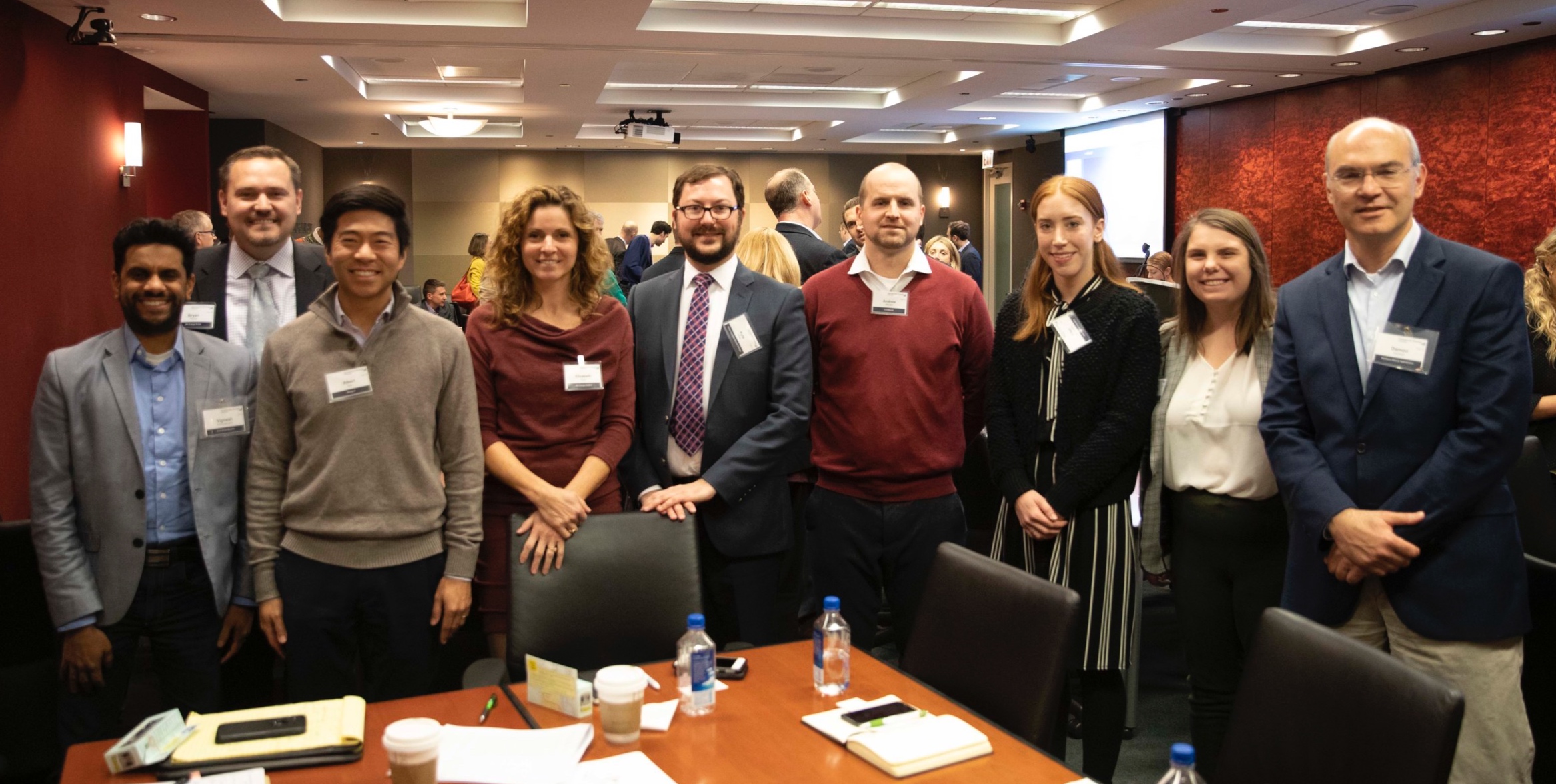
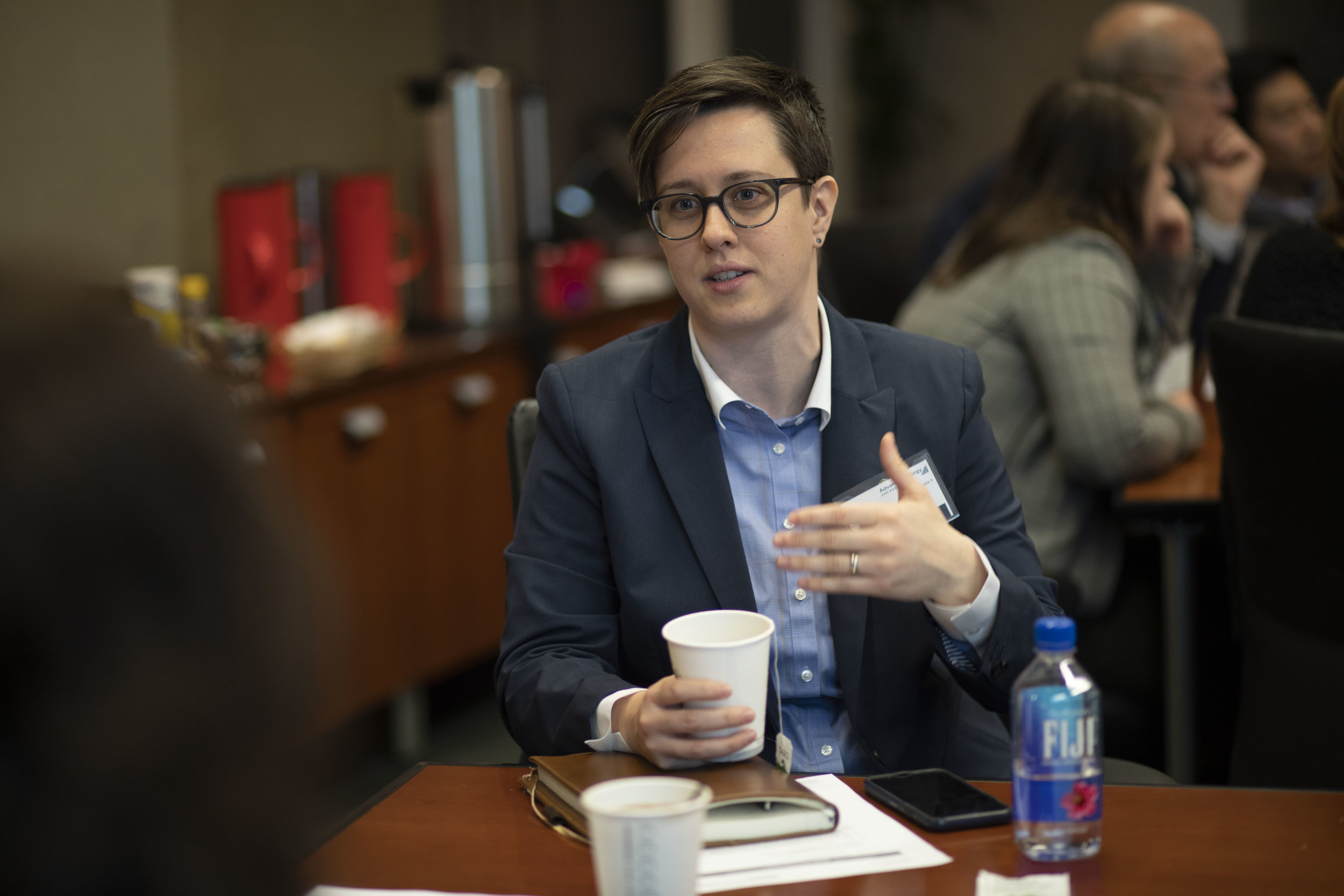



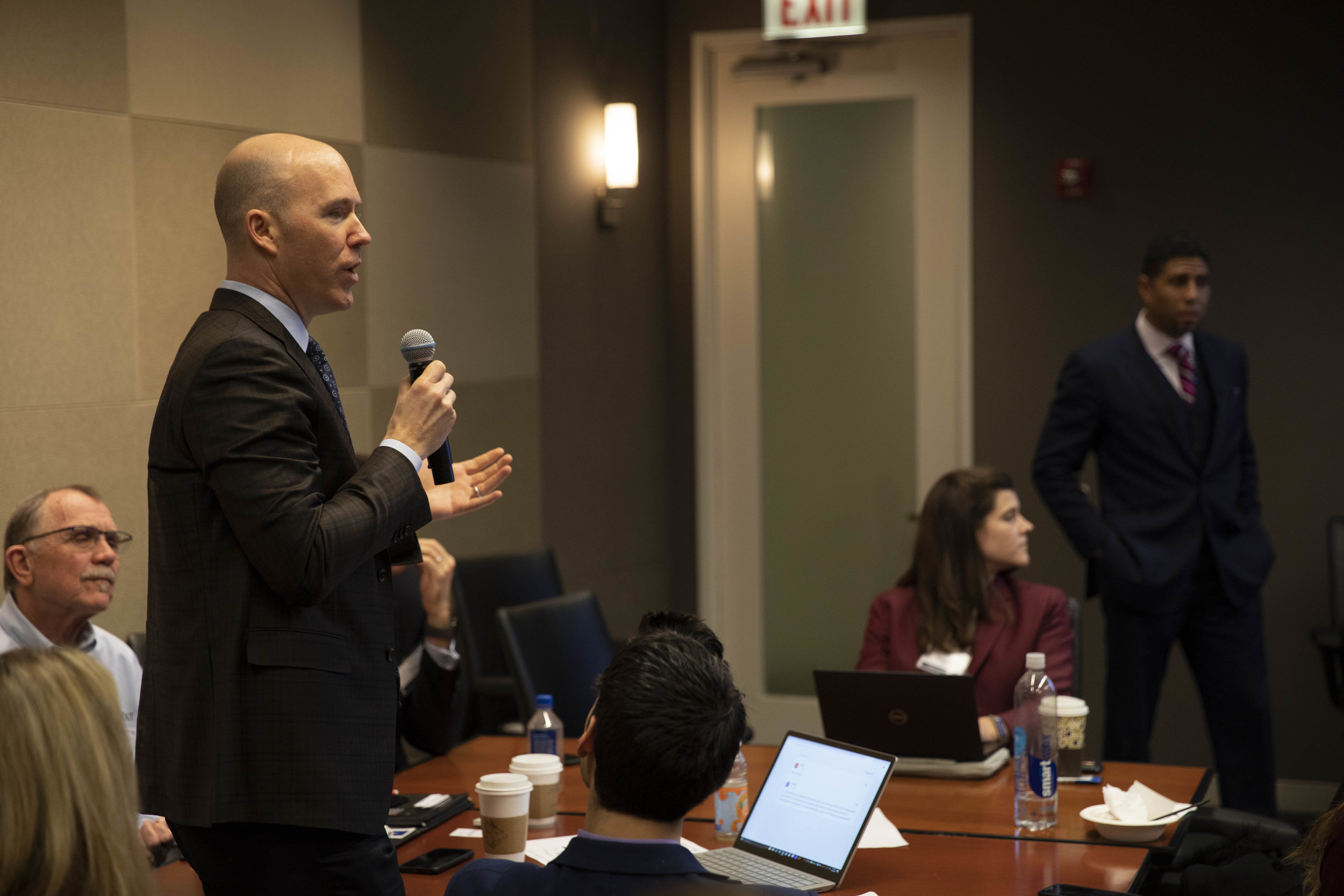
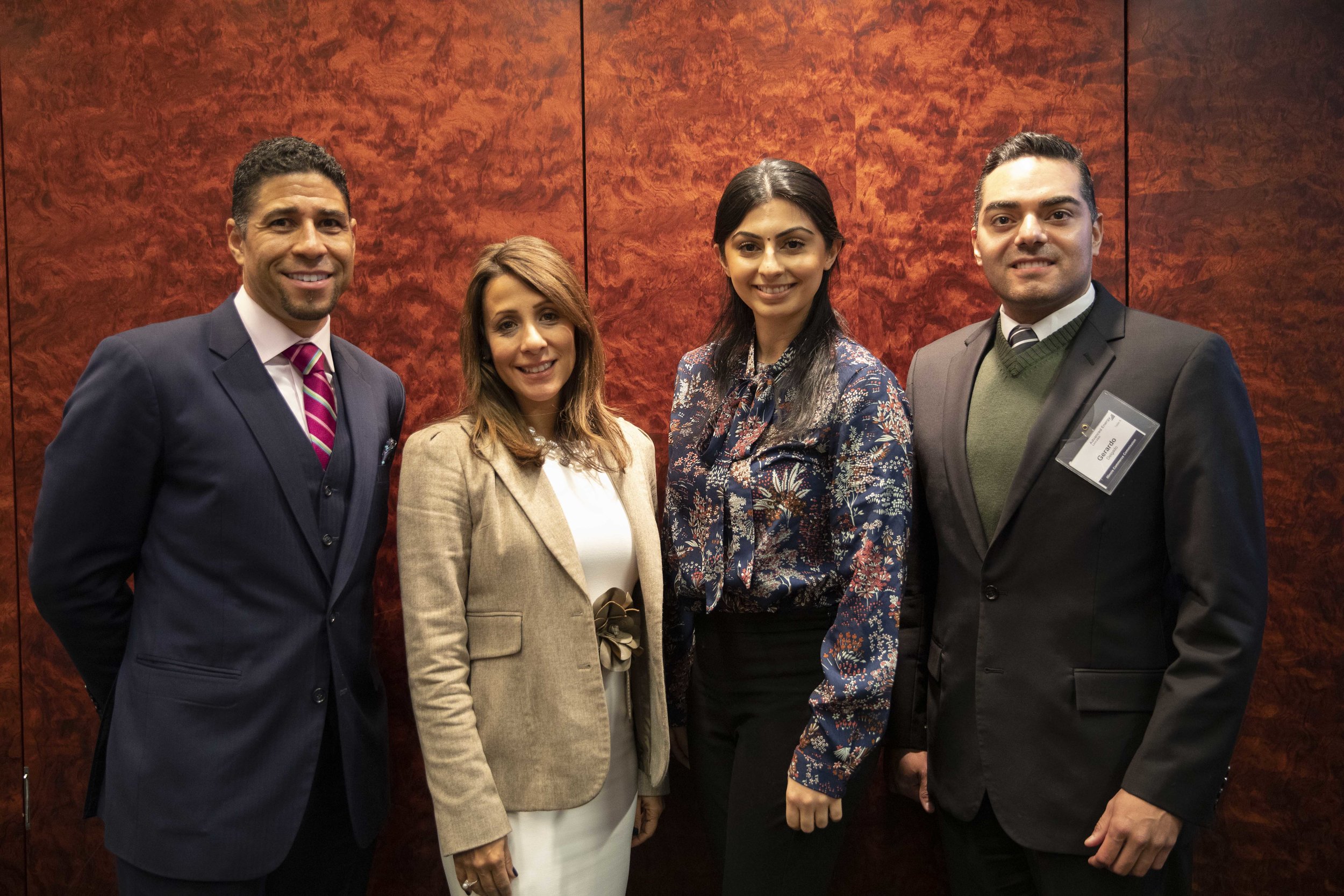
Next quarter’s Chicago Advanced Energy Stakeholder Breakfast on Resiliency, Critical Infrastructure, and Microgrids will be held March 14, 2019. More details can be found here.
Advanced Energy Group is a stakeholder member-supported organization committed to developing and delivering advanced energy policies and solutions in key cities. Stakeholder sessions are by invitation only. For details of our programming please visit:
Event Calendar | Podcasts | Videos | LinkedIn | Twitter




